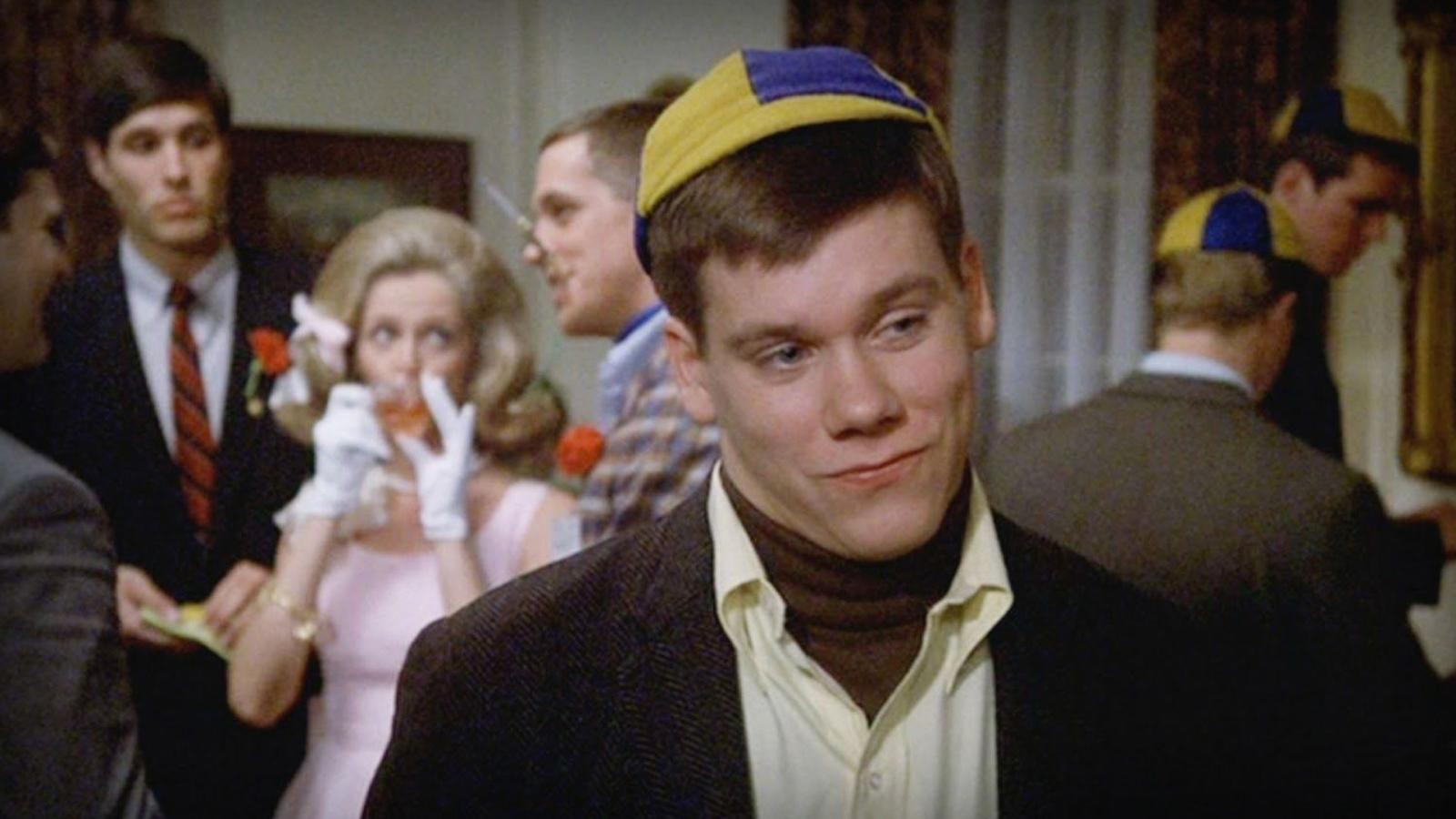Animal House (1978): 15 Weird Facts You Didn't Know!

Animal House didn't just invent the college comedy. It rewired the genre, pushed studio boundaries, and became one of the most profitable R-rated comedies ever made.
But behind the food fights and toga parties was a production barely holding together—real damage, real drinking, and a lead actor the studio was quietly afraid of.
Here are 15 facts that explain how Animal House turned chaos into a hit—and why nothing about it was supposed to work.
1. Belushi Actually Chugged the Jack Daniels
In the frat house montage, John Belushi grabs a bottle of Jack Daniels and downs it in one take. It wasn't a prop. The whiskey was real. The crew expected him to spit it out. He didn't. He finished the scene and walked off without a word. No camera trick. No edit. Just Belushi being Belushi.
2. Universal Tried to Change the Title
Executives thought "Animal House" was too crude. They pushed for something safer. Director John Landis refused. He argued the title reflected the film's tone—and threatened to quit if they changed it. The studio backed down.
3. Belushi Was Paid Just $35,000
Despite being the breakout star of Saturday Night Live, Belushi was offered only $35,000 for the film. Universal didn't see it as a real vehicle—they expected a quick flop. Belushi didn't argue. He took the money and delivered the defining role of his career.
4. Almost Every Studio Turned It Down

Before Universal came on board, the project was rejected by nearly every major studio. It was seen as too mean, too strange, or simply too juvenile. Producer Matty Simmons kept pitching it until Universal finally gave it a shot—with a minimal budget.
5. The Studio Sent a Supervisor to Spy on the Cast
Worried about the mix of Belushi, alcohol, and a young cast, Universal assigned a production supervisor to monitor the set. The cast called him "The Rat." He kept a clipboard and tried to keep order, but never interfered—and never stopped a single party.
6. The On-Screen Rivalries Were Real
To build tension, Landis housed the Delta actors in a rundown shared space and let them party together. The Omega actors were isolated in a hotel. The divide worked. By the time cameras rolled, the resentment was real—and so was the chemistry.
7. The Set Was Actually Destroyed
The production team built the Delta house to look lived-in. By the end of the shoot, it was. Furniture was smashed, walls were stained, rooms were ruined. The cast treated the set like a real fraternity—and the destruction made it into the final cut.
8. Real College Students Were Used as Extras
To keep the party scenes grounded, producers recruited local students from the University of Oregon. Some showed up drunk. One food fight spilled into a real cafeteria. At times, the extras refused to leave after filming ended. The energy on-screen wasn't faked.
9. Kevin Bacon Was Still in College
Most of the cast were seasoned actors in their late 20s or early 30s. Kevin Bacon, who played the freshman pledge Chip Diller, was the only one still enrolled in college. He wasn't famous yet—just a real student playing one.
10. Landis Had Never Directed a Studio Film Before

At 27, John Landis had never directed a studio feature. Universal gave him the job anyway. He ran the shoot with fast calls, instinctual edits, and improvised chaos. It shouldn't have worked. It did.
11. The "Food Fight" Scene Was Completely Improvised
Belushi grabbed a handful of mashed potatoes, shouted "Food fight!" and launched the most famous moment in the film. It wasn't scripted. The rest of the cast followed his lead. Cameras kept rolling. What ended up on screen was real confusion and real destruction.
12. The Studio Nearly Cut Donald Sutherland's Nude Scene
Sutherland's nude exit was mild by modern standards—but Universal panicked. Executives worried it would alienate audiences or hurt the film's rating. Landis refused to cut it, arguing it was no worse than the rest of the movie. He won.
13. It Earned $140 Million on a $3 Million Budget

Animal House was made for just $3 million. It earned more than $140 million worldwide, becoming one of the highest-grossing comedies of its time. No one at Universal expected that kind of return—not even close.
14. It Changed Fraternity Culture Nationwide
After the film's release, toga parties surged across U.S. campuses. Pledge rates jumped. Fraternity reputations changed. Students didn't just watch Animal House—they reenacted it. The movie reshaped college life for years.
15. The Studio Had a Backup Plan in Case Belushi Went Off the Rails
Belushi's reputation worried Universal. Producers quietly prepared alternate scenes and ensemble adjustments in case he became unreliable. But he showed up, delivered, and made himself the centerpiece of the entire film. They never needed the backup plan.